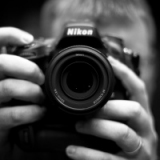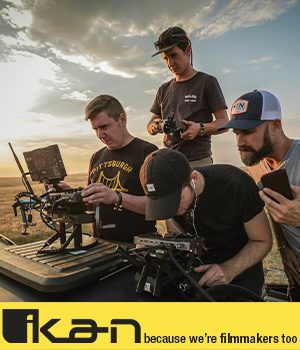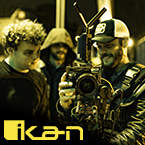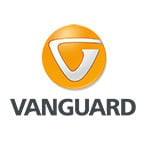- Forum
- Photography and Camera Forum
- Equipment Research, Buying and Using
- Lenses
- Debating my next lens purchase
Debating my next lens purchase
-
 Topic Author
Topic Author
- Mark-Garety
- Newbie
-
- Nikon D610
- Followers: 3
- Posts: 3
-
Points:
203
Post #677483
So these are the lenses I currently own:
- Nikon 18-105mm F3.5-5.6 VR kit lens (came with my original D90)
- Nikon 35mm F1.8G DX prime (using it on FX with decent success - area of coverage works for FX when shooting wide open.
- Nikon 50mm F1.8G
- Nikon 80-200 AF F2.8 push pull
- Option 1: Purchasing a replacement FX equivalent for the 18-105 DX kit lens.
I was looking at trying to grab a used older Nikon 28-105 F3.5-4.5 AF-D lens. This would be a walk around - all purpose lens, but probably not a particularly nice lens. That's kind of how I've always felt about the 18-105 DX kit lens. Saying that, when I travel or go out for the day with my camera and I have to choose one lens for the day, this is usually the lens I put on the camera. I went to Germany a few years ago, and this was the only lens I used for 2 weeks, and I got lots of nice pictures with it. So, having something with he versatility to cover a large focal range would be nice. - Option 2: Looking for a used / older professional mid-range F2.8 zoom.
I'm on a budget of just a few hundred dollars, so I was considering the older Nikon 35-70mm F2.8 AF zoom lens. There might be something 3rd party, but I haven't investigated the options here. The struggle I'm having with this option is now that I have a 35mm prime and a 50mm prime, do I really want to put he money into a zoom that covers that same focal range? I've thought that something like this could fill in as the kit lens replacement, but I also don't know that I'm going to want to lug a round a big heavy pro-zoom lens when I'm out and about with my family all day taking photos. - Option 3: Get a wide angle lens.
I never really considered wide angle lenses because of the crop factor on my DX bodies. However, now that I've gone to an FX body, I can take advantage of the wider angle lenses. Again, I don't have a huge budget, so a newer fixed aperature Nikon lens is probably out of the question. I've been considering just starting out with an older 20mm F2.8D lens and going from there. But I've also been looking at some of the 3rd party lenses like the Tokina 16-28mm F2.8 pro lens which could give me a wider range of zoom options in that ultrawide category.
So far, I've found that I would like somethign a little wider than my 35mm. I've done some architectural photography where I've found my 35mm isn't quite wide enough to get me what I want. I also tried astrophotography for the first time last week and found that I wished I could go wider. The 20mm prime would get me in that range, but not having first hand experience with it, I don't know if I would find that focal length gets me what I want. I also have read that the image quality from that lens is just OK. On the other hand, I don't know that I completely trust buying used or new 3rd party lenses. Every lens I've every used has been Nikon. I know there are some other options. There are similarly priced lenses that are slower, F4 fixed or variable aperture F3.5-4.5 lenses. If I'm thinking that I would potentially use it for astrophotography, the I don't know that I want to put money into the slower lens options. i'm don't expect to go all the way down the astrophotography path, but I could see enjoying capturing images of the stars and night sky while camping or spending time out of town. Some of my favorite photos I've ever captured have been long exposure shots taking in the time right after the sun sets. Faster lenses have an appeal to me for that reason.
-

- TinBC
- Newbie
- Follower: 1
-
Points:
90
Post #677522
-
 Topic Author
Topic Author
- Mark-Garety
- Newbie
-
- Nikon D610
- Followers: 3
- Posts: 3
-
Points:
203
Post #678063
- Forum
- Photography and Camera Forum
- Equipment Research, Buying and Using
- Lenses
- Debating my next lens purchase
Latest Reviews
The Olympus Pen E-P7 is an affordable micro four thirds mirrorless camera with 4K video capabilities, a 20.3MP sensor, and 121 focus points, making it a solid entry-level camera for beginners.
The Panasonic G9 II is a 25.2-megapixel micro four thirds camera with numerous features that make it punch out of its weight class, like 779 AF points, 5.8K video, and weather sealing.
The Fujifilm XT5 is a 40MP mirrorless camera capable of 6.2K video at 30p. With those specs, it’s an ideal choice for photographers needing a camera to pull double duty for imaging and video.
The Canon EOS R100 is an entry-level mirrorless camera introduced in 2023. But just because it’s an entry-level camera doesn’t mean it’s a bare-bones camera. Find out why in this review!
Latest Articles
Upgrade your kit in 2024 with the best intermediate camera on the market! The question is, what camera fits the bill? We’ve got three top options for you to choose from in this buyer’s guide.
The best photography jobs right now are a mix of tried-and-true gigs like wedding photography and new jobs highlighting AI’s capabilities, travel, and videography.
The Olympus Pen E-P7 is an affordable micro four thirds mirrorless camera with 4K video capabilities, a 20.3MP sensor, and 121 focus points, making it a solid entry-level camera for beginners.
Starting a photography business is one thing; sustaining your business over a long period of time is another. Use the tips in this professional photography guide to build something with longevity!
The Panasonic G9 II is a 25.2-megapixel micro four thirds camera with numerous features that make it punch out of its weight class, like 779 AF points, 5.8K video, and weather sealing.
Cinematic photography is an interesting genre that combines photographic and videographic skills along with effective storytelling techniques. The result? Highly impactful images!
Newborn photography requires skill, the right gear, and a lot of patience. This beginner’s guide discusses critical topics that will help you be more prepared for before, during, and after the shoot.
To fill the frame means to expand the footprint of the subject in your shot. Get in close, zoom in, crop the image, or use other techniques to bring the subject to the forefront.














